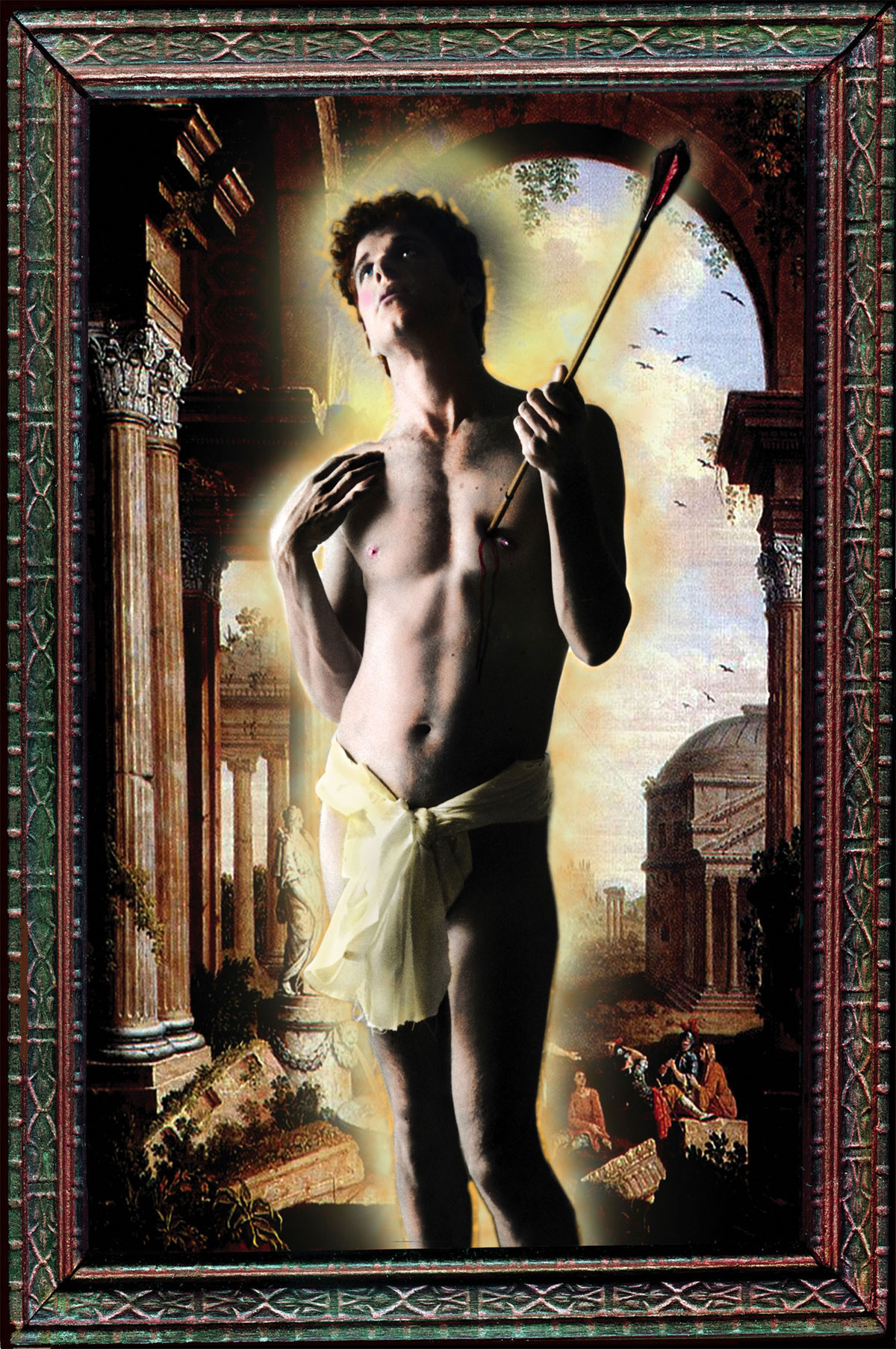Tales of Hoffman
“You can think that this apocalypse has meaning, but in reality you’re just projecting that on it. It could be that God was just jerking off and happened to get a splat in his eye.”
Kristian Hoffman
is one of the more ferociously, freshly indeed fearlessly artistic musical individuals currently
striding boldly and confidently across our planet. Why, he can do it all, or much of it, as
evidenced in the wickedly varied strands of his career: He’s the one who wrote
Klaus Nomi’s
“Total Eclipse,” which was covered by Soft Cell’s Marc Almond and several others. And long
before this, Hoffman was the songwriter for the infamous mid-‘70s pop/punk combo Mumps,
which starred the legendary Lance Loud (soon, apparently, to be the subject of an HBO
mockumentary called Cinema Verite).
Hoffman has been musical director for Rufus Wainwright; produced, arranged and co-wrote
Ann Magnuson's latest CD Pretty Songs and Ugly Stories and toured for five years
as keyboardist for Kinks man Dave Davies; he’s written, sung, played and arranged for a million
or so others, including Bleaker Street Incident, Congo Norvell, James White and the Blacks, the
Contortions, Lydia Lunch, the Mink Stole band, the Abby Travis band, the Carolyn Edwards band,
the Andrew Sandoval band, and the house band at L.A.’s Velvet Hammer Burlesque.
Perhaps more to the point, Kristian Hoffman has recently released an extraordinarily satisfying
solo album entitled Fop, on the Kayo Stereophonic label. A sumptuously sonorized smorgasbord of
pithy pop ditties, dramatic declamations and somewhat scabrous –– well, let’s just say it’s a
dandy…much like the man himself.
|

BLUEFAT:
Surely you realize,
Kristian, that your new album is rather… spectacular.
KRISTIAN
HOFFMAN: There were two
concurrent, overarching themes. One of them was that many of the songs were
written toward the end of the Bush regime, when it looked like either we
would have to become expatriots or the world was going to end; there was
this sense of impending disaster on so many levels –– governmental,
societal, economic, environmental and all that stuff.
And
then the other overarching theme was, What is my position as a person who
perceives himself as an artist but doesn’t really know my place in the
community of art? Having been a gay person who’s kind of a slash –– well,
the word fop, I wanted
it to be two-pronged, like people’s perception of me might be that I am a
fop and it could be derogatory, but also my perception of myself is that I
am a fancier; I have chosen to journey through life as a dandier person
than many people would have, which would be more a result of watching a lot
of crazy rock stars than identifying with gays. But it would be the aspect
of comportment in society; I choose to be more flowery than the normal
person.
So
there were these two sort of things that I thought might make a good
story: This journey of a guy who’s an outsider not by choice and by
choice, in this world that we didn’t know how long was gonna last.
You have earned
the right to call yourself a fop.
[laughs] There’s lots of pictures of me in many a
clown suit around here. I mean, if it’s shiny, I’ll wear it.
But there’s righteous indignation in this music.
Hopefully with
some hooks.
With plenty of hooks, and then there are the words.
You have a line in the opening song, “Something New Is Born” where you say
that all is lost, but anything is possible. In the song’s big wind-up you
drop nicely poetical terms like a “harmonic thrust” and “the semen in the
eye of God.”
I have this friend
who said, “I don’t know how you earned that line, but you earned it.” It
was the biggest compliment.
That's the most
foppish song, so I wanted to start that way right off toward the beginning.
It dares to be very quiet and asks you to accept it with one word and a
chord and no music production to tell you where you are, and then it gets
absolutely embarrassingly opulent and lavish like a Richard Harris song; by
the end, so it’s so
over the top. You know, like, “This is my mission statement: I want to be
just as big and overproduced and grandiose as I possibly can be.” I like
those kinds of records, but I know they’re not particularly in fashion at
any given moment.
So
that was kind of the statement of foppish intent. And then the thing about
the “semen in the eye of God” was, it’s like you can think that this
apocalypse has meaning, but in reality you’re just projecting that on it,
and it could be that God was just jerking off and happened to get a splat
in his eye. Because we’re humans we hunger for meaning in every
happenstance, and I would hope that if there was some terrible apocalypse
then something good would come out of it and something new would be born.
But perhaps it’s just one more cosmic joke.
(continued)
Photo: Donal Kreiger
|
|